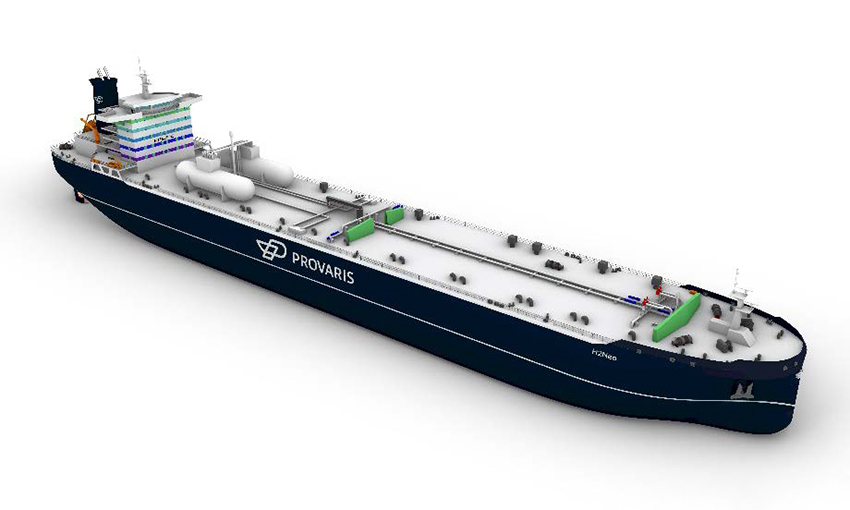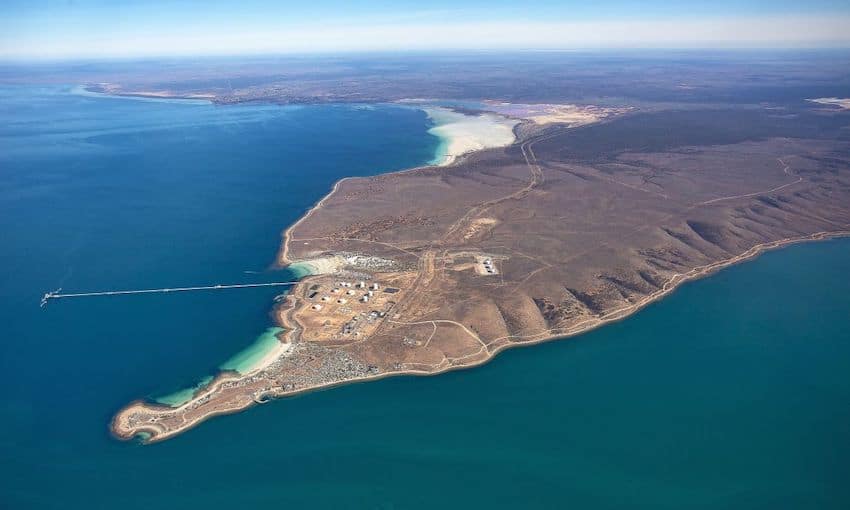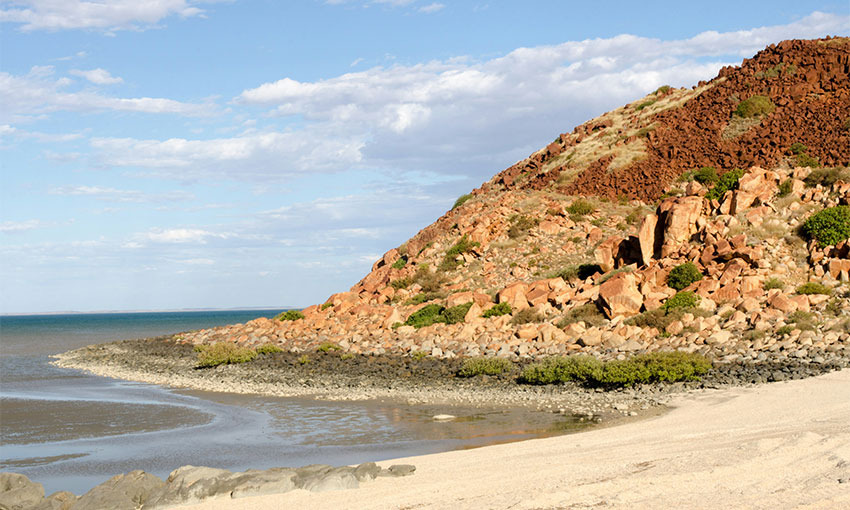ASX-listed Provaris Energy has announced a package for a new compressed hydrogen carrier is expected to be complete in June, with approval for construction of the vessel expected in 2023.
Provaris, previously called Global Energy Ventures or GEV, also said preliminary engineering and concept design for port infrastructure required for the import and export of compressed hydrogen are also progressing.
Provaris managing director and CEO Martin Carolan said: “The design team for the GH2 Carrier continue to make excellent progress on the final design package for discussions with shipyards, an important milestone to refine our cost and schedule for construction and feed into project studies now in progress.”
Mr Carolan also said the Provaris management team recently visited Europe and the UK to market the company’s compressed hydrogen system, receiving an “encouraging” response, given its 2026 target for delivery.
“With the demand in Europe for import solutions starting from 2024-2026 the interest in transport solutions has increased given the focus on energy security and new gas infrastructure seeking approvals for gas imports required to demonstrate a hydrogen capability,” he said.
Specialised compressed hydrogen carrier
Provaris said its design team and consultants continue to advance the detailed contract design package (phase, which is now 70% complete and on track for final delivery in June 2022.
The company said it is sharing completed work design packages with with shipyards for construction schedule and capital cost estimates, along with class societies as part of the approval for construction milestone targeted for mid-2023.
The packages include hull design optimisation (speed-power, structural steel assessments, and intact and damage stability), finite element modelling, shipboard safety systems, general arrangement drawings and a ship outline specification.
Provaris chief technology officer Per Roed said the H2Neo engineering and design is now progressed sufficiently to commence discussions with class for the design of testing and approval for construction.
“We are also now integrating port infrastructure designs for our supply chain discussions with ports in Asia and more recently in Europe,” he said.
Class approvals
Provaris engaged ABS Consulting for gas dispersion, fire, and explosion safety studies necessary to allow class to verify the safety issues of the vessel surrounding its operation, especially in regard to the hydrogen storage tanks and cargo management.
The company said discussions with class societies, including American Bureau of Shipping, are underway on the program required for engineering, risk and safety studies, and testing to achieve an approval for construction in 2023.
Port designs for compressed hydrogen
Provaris said it is progressing concept designs for the export and import of hydrogen in locations that include Asia and Europe. It is expected that a base design will be adaptable to multiple locations, with site specific access and regulatory requirements a key requirement for customisation.
Provaris has engaged Paaras Marine Solutions, a marine structural engineering company based in Singapore, to develop and assess port systems for the loading and unloading of compressed hydrogen using the Provaris GH2 carriers
Paaras is to develop a concept for an unloading marine jetty facility in Singapore, which will include jetty systems abutting onshore and a facility located offshore with subsea pipeline connecting on onshore distribution network.
The engineering company will also evaluate existing marine facilities at Port Melville on the Tiwi Islands to accommodate the compressed hydrogen carriers. The company will also develop a concept for compressed hydrogen to be stored on barges, based on requirements for intermittent supply or redundancy in the supply chain.
Concept designs will be included in the feasibility studies in progress for Tiwi H2 and HyEnergy, along with analysis of compressed hydrogen with port operators now underway in Europe.





